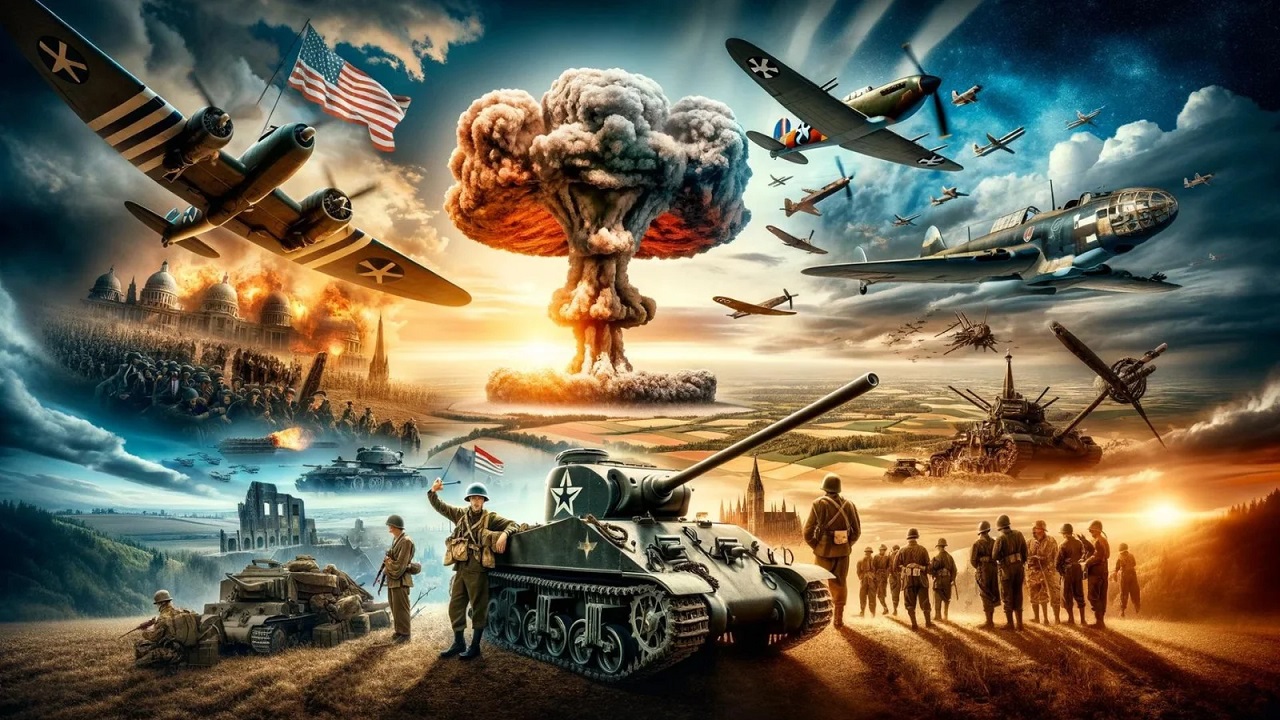A World in Crisis: Conflicts, Terrorism, and Global Uncertainty
Context: A Time of Unprecedented Instability
The world today is going through a period of extreme unpredictability and rising conflicts. Violence, political instability, and terrorism are reshaping global security in ways that were previously unimaginable.
Some of the key challenges the world is facing right now:
-
Ongoing Wars and Conflicts:
- The war in Ukraine continues without any clear resolution.
- In West Asia, innocent civilians are being targeted in Gaza and other regions.
- Other areas are dealing with internal conflicts and civil wars.
-
Failure of Global Institutions:
- Organizations like the United Nations Security Council (UNSC) and International Court of Justice (ICJ) have become powerless in preventing conflicts.
- These institutions, meant to uphold international law, now appear to be mere spectators.
-
Moral Decline in International Politics:
- The ideas of justice, fairness, and morality that once guided global diplomacy seem to have disappeared.
- Power and military strength are now determining international decisions.
The post-1945 world order, built on diplomacy and cooperation, has collapsed irreversibly, leaving behind a world where violence and power dominate.
Geopolitical Misjudgments: The Illusion of Stability
- Many believe that Israel and the U.S. have secured peace in West Asia through military action in Gaza and Lebanon.
- However, this is far from reality—the Iran-backed Axis of Resistance remains active, and tensions are far from resolved.
- Victory in these wars may prove to be short-lived (a "pyrrhic victory"), meaning that the cost of war outweighs any real benefit.
- Secret underground activities suggest that conflicts may erupt again in the near future.
Islamist Terrorism: A New and Evolving Threat
Despite efforts to fight terrorism, Islamist extremism remains a serious threat worldwide. The nature of terrorism is changing, making it harder to control.
Why is Islamist terrorism still a major concern?
-
Radicalization through the Internet:
- Extremist groups are using social media and Artificial Intelligence (AI) to spread propaganda and recruit new members.
- Many attackers today are self-radicalized online, without direct contact with terrorist organizations.
-
Rise of ‘Lone Wolf’ Attacks:
- Individuals acting alone, inspired by extremist ideology, are carrying out unexpected and deadly attacks.
- This makes it difficult for intelligence agencies to predict and stop attacks in advance.
-
Decentralized Terror Networks:
- Unlike earlier terrorist groups, modern extremists operate in small, independent cells, making them harder to track and dismantle.
-
Use of Advanced Technology:
- Terrorists are adopting AI, encrypted messaging apps, and digital payment systems to organize and finance attacks.
While groups like ISIS and al-Qaeda have been weakened temporarily, their evolution into digital networks keeps them dangerous.
Historical Roots of Islamist Militancy
The modern wave of Islamist terrorism can be traced back to 1979, a year that changed global jihad:
- In Afghanistan, radical Sunni militants started organizing with foreign support, eventually leading to al-Qaeda.
- In Iran, the Shia Islamic Revolution aimed to challenge Western influence.
- This era saw the spread of violent jihadist ideology, which later gave rise to global terrorist groups like ISIS.
Over time, the intensity of global jihad has fluctuated, but the ideology behind it remains strong.
The Growing Resurgence of Terrorism
Recent Signs of Increased Terrorist Activity
- Al-Qaeda has resumed training camps in Taliban-controlled Afghanistan.
- ISIS-K (Islamic State Khorasan Province) is expanding operations in Afghanistan, Pakistan, and Central Asia.
- New terrorist attacks have occurred in Moscow, Iran, Türkiye, Pakistan, Bangladesh, Malaysia, Singapore, and Thailand.
- While these attacks are not yet large-scale, the gradual rise in frequency is alarming.
Recent Terrorist Attacks Raising Global Concern
-
Las Vegas Cybertruck Explosion (January 2025)
- A Tesla Cybertruck exploded outside a hotel where then U.S. President-elect Donald Trump was staying.
- The driver, a former U.S. Special Forces member, was found dead inside the vehicle.
- Investigators suspect links to terrorism or radicalization within the military.
-
New Orleans Truck Attack (New Year’s Day, 2025)
- Shamsuddin Jabbar, a 42-year-old U.S. military veteran, drove a truck into a crowd.
- 14 people were killed, 35 injured.
- His vehicle had a black ISIS flag, indicating terrorist motivation.
- Jabbar was shot dead before interrogation, but authorities believe the attack was well-planned.
These incidents suggest that a new phase of terrorist attacks is emerging—with highly trained individuals now involved in extremist activities.
Warnings That Should Not Be Ignored
- Security experts fear a new wave of terrorism is coming, with AI-powered recruitment and propaganda playing a major role.
- ISIS and al-Qaeda recruiters are actively using digital platforms to find new members.
- While large-scale attacks have not yet occurred, a pattern of small, deadly attacks is growing worldwide.
- If counter-terrorism efforts do not intensify soon, terrorism may return in a stronger, more dangerous form.
Conclusion: A Call for Global Action
The world is at a critical turning point. With wars in Ukraine and West Asia, the failure of global institutions, and the resurgence of terrorism, international stability is at risk.
To prevent further chaos, global leaders must take immediate and decisive action:
-
Strengthen Global Counter-Terrorism Measures:
- Governments must develop new strategies to tackle digitally-driven terrorism.
- Intelligence agencies must collaborate internationally to track extremist networks.
-
Revive and Reform International Institutions:
- Organizations like the UNSC and ICJ must be strengthened to enforce international laws effectively.
- Stronger diplomatic efforts are needed to prevent wars before they escalate.
-
Promote Global Cooperation:
- Instead of allowing rivalries and power struggles to fuel conflicts, nations must work together for long-term stability.
If world leaders fail to act decisively, we may soon witness even greater global instability and violence. The time for decisive action is now.


.jpg)

Comments (0)